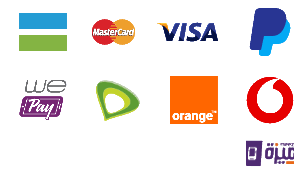ترجمة مقاله عن الإعلام والتكنولوجيا الرقمية .. تطور مستمر وتحديات جديدة الي اللغه الانجليزيه
تفاصيل العمل
The global media industry is undergoing a sharp turning point under the influence of rapid technological developments. Most experts expect a complete end to print journalism within a decade or two at most. The media and digital technology are in a constant challenge to keep up with the preferences of the audience regarding suitable methods and patterns for them. However, this is not the only issue facing the media, as even traditional media that has completely transformed into digital faces significant challenges in terms of revenues due to the dominance of major internet companies - such as Google and Facebook - in the digital advertising market. It also faces other challenges resulting from being under pressure to keep up with the rapid technological developments that lead to changing people's reading habits. Exploring the future of media and digital technology The task of exploring the future of less developed countries from the perspective of the impact of technology on various sectors of life in them seems relatively easy. The future in these countries is often a past in developed countries. It has become clear that the global media is moving towards digital and mobile media, but this does not mean that all other media will disappear completely in the near future. Many newspapers and magazines in the US and Arab world have stopped publishing paper versions and switched to digital versions. The Christian Science Monitor newspaper stopped printing a paper version in 2009, followed by US News & World Report magazine in 2010 and Newsweek in 2013. Many American, English, and French newspapers and magazines followed suit. In the Arab world, Al-Adab magazine from Lebanon switched to an online version in 2012, followed by Al-Aswaq Al-Arabi magazine in 2013. The Lebanese newspaper Al-Safir stopped publishing at the beginning of 2017. In 2016, online ads generated around $177 billion globally, equivalent to one-third of all types of ads registered in the same year. Google had the largest share of around $79.4 billion, followed by Facebook with $26.9 billion. If we add what Baidu, Microsoft, Yahoo, Verizon, and Twitter received, we find that these seven companies secured three-quarters of internet advertising revenues worldwide. Online advertising surpassed TV advertising to become the world's largest advertising medium, according to data and analysis from Zenith (a media marketing agency). In the Arab world, online ads generated only around $1 billion in 2016. Although this figure represents only 5% of total Arab advertising spending for the same year, it shows an annual growth rate of about 20%, while advertising spending on other media has declined. This indicates the need to increase interest in digital media and build advertising partnerships with major global internet companies. For example, Google ads are now displayed on reputable media networks such as the BBC.
مهارات العمل
بطاقة العمل
طلب عمل مماثل









